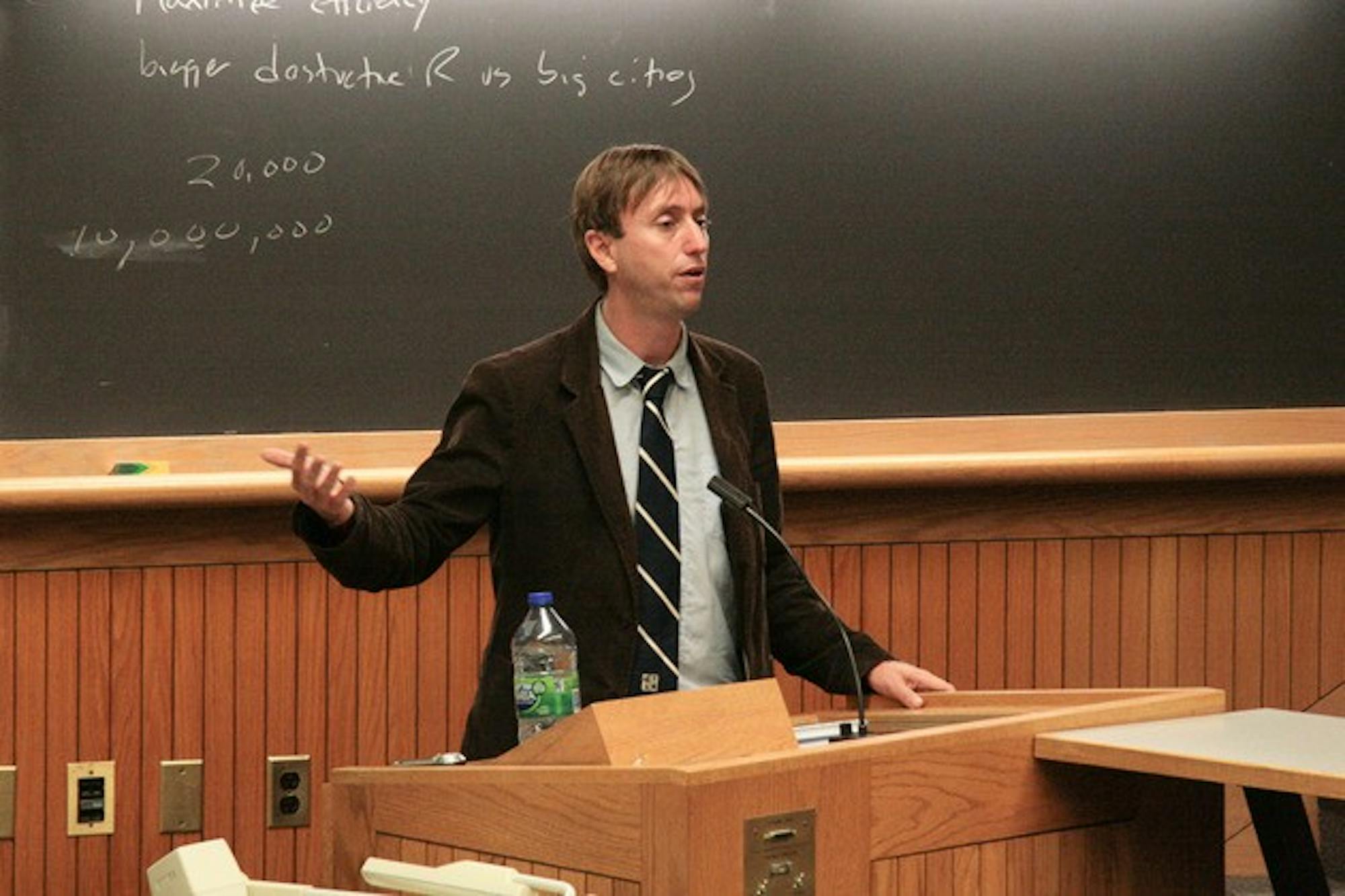Multiple studies reveal a positive correlation between religiosity and overall mental health, according to Whitley, who teaches at Dartmouth and McGill University. There is also a negative correlation between religiosity and rates of delinquency, depression, suicide, anxiety, phobia, bulimia and drug abuse, he said.
"One can really conclude from these studies that religiosity improves your mental health," Whitley said. "It's a modest relationship it's not an overwhelming relationship, but it is at a statistically significant level."
Despite the existing evidence, there is a "long and tense history" between psychiatry and religion, Whitley said. He classified both academic disciplines as "institutions" and explained that all institutions inevitably compete against each other as they seek to advance their individual agendas.
In the modern era, psychiatry has increasingly sought to distance itself from religion, even though many of psychiatry's key figures were highly religious.
"Psychiatry, even if it's not anti-religious, is certainly not pro-religious," Whitley said. "At best you could say it was indifferent."
Psychiatrists often believe that other branches of medicine do not view psychiatry in "strictly scientific terms," Whitley said. Consequently, psychiatrists attempt to do "everything they can" to distance themselves from this stereotype, he said.
"It's the one part of medicine where there are people attacking it, and it does have to be defensive," Whitley said. "Psychiatry has developed as a very secular discipline, as something that has tried to distance itself from religion and its organization and its bodies."
Psychiatry's shift away from religion is negative because it has alienated many of the individuals whom the field intends to serve, according to Whitley. Given the large gap between the two disciplines, some individuals in need of mental assistance choose not to attend psychiatric clinics because the culture of the clinics does not coincide with their religious beliefs and other aspects of their lifestyles, he said.
Despite the current rift, it is possible to find harmony between psychiatry and religion and steps have been taken to merge the two over the past five years, Whitley said. New psychiatric training initiatives, for example, include religious aspects and research into possible collaborations between the two fields has increased. Most importantly, the negative attitude among psychiatrists toward religion has begun to soften, he said.
Whitley also discussed the changing nature of religion itself and highlighted the distinction between institutionalized religion and the more fluid and individualized concept of spirituality.
Many members of younger generations have begun to identify as spiritual but not necessarily religious, he said. Although Whitley said he recognizes the merits of spirituality, this shift may detract from the moral guidelines that one gains by subscribing to a clearly defined religion.
The lecture, "Religion and Psychiatry: Friends or Foes?" was sponsored by the Tucker Foundation and took place in the Rockefeller Center.




